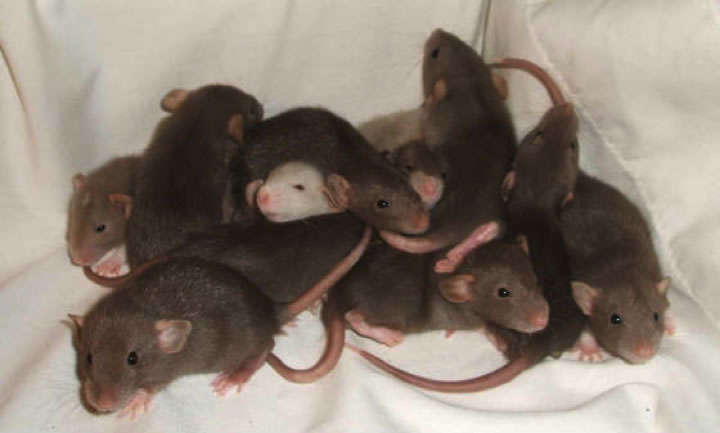Laughter-Like Behavior in Rattus novegicus
Biology 342 Fall 2012
by Anna Fimmel
Adaptive Value
A behavior’s adaptive value is how it contributes to the rat’s survival or reproductive success. In other words, how does a rat’s laughter-like behavior increase the probability that it will survive longer and have more offspring?

At this point, there have not been many studies detailing differential survival rates in rats who show more laughter-like behavior versus less laughter-like behavior. However, it may be indicative of an interest in social experimentation, which, as the rat matures, might lead to a more advanced ‘social life’ and competence when communicating with other rats. This social advantage might lead to higher reproductive success (Panksepp, 2007). Effective communication increases survival rate too.
Rat pups cry out when they need maternal care, as detailed in the ONTOGENY section. Rats who vocalize more, therefore, might get more care from their mother, and thus have a higher survival rate (Burgdorf & Panksepp, 2003).
Overall, more research needs to be done before it can be said definitively what the adaptive value of these rat vocalizations is (if, indeed, there is an adaptive value to them at all).
The rat pups in the picture to the right have the capacity to communicate with each-other and their mother, a skill that may increase reproductive success and survival rate.